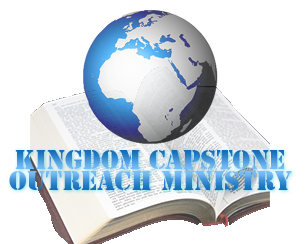You are here
MODEL OF IMPACTFUL LEADERSHIP (3)
“And I have filled him with the Spirit of God, in wisdom, in understanding, in knowledge, and in all manner of workmanship” – Exodus 31:3
Moses’ MODEL of IMPACTFUL LEADERSHIP acknowledged, identified and promoted other creative ministries: “See, I have called by name Bezaleel the son of Uri, the son of Hur, of the tribe of Judah. And I have filled him with the Spirit of God, in wisdom, in understanding, in knowledge, and in all manner of workmanship” (Exo.31:2-3). Moses is depicted as a leader who was divinely appointed, guided, and able to transmit God’s Instructions and orchestrate the construction of the Tabernacle. His was a leadership model focused on obedience to divine authority, communication, and visionary execution.
God had given many instructions to Moses about the structure and design of the tabernacle – a detailed, intricate set of ideas. However, as great a leader as Moses was and would yet become, he was not equipped with the set of skills necessary to bring the ideas into reality. He needed help for that; and God had a plan in the form of some creative artisans He had precisely chosen and prepared for the tasks. Bezaleel and Oholiab were gifted by God to bring His Plan into reality. God went out of His way to state that He was the one who had called and equipped the creative duo. Their skills didn’t flow from out of nowhere. Also, God’s provision of artisans went beyond the two: “I have put wisdom in the hearts of all the gifted artisans” (v.6).
God never calls us to an assignment He does not also equip us to accomplish; and our gifts and talents are not random. Everything God does is intentional. If the creative team hadn’t been faithful to apply their gifts as they were called, the people couldn’t have worshiped as God designed. On his part, Moses showed impactful leadership by actively receiving and accepting divine instructions, delegating tasks, and fostering the design and construction of the tabernacle. This was a leader who valued spiritual direction and sought God’s Wisdom in decision-making. In delegating responsibility, he entrusted the task of building the tabernacle to the talented and skilled individuals, signifying his ability to empower others and share leadership burdens.
Moses prioritized the establishment of the sacred space for worship, reflecting a leader who understood the significance of spiritual practices and the well-being of the community. His intimate personal relationship with God was a crucial aspect of his leadership, being able to receive guidance and strength from God to lead his people. Moreover, Moses’ leadership underscored a commitment to stewardship and empowering others, seeking to train his people in their divinely-ordained roles. Overall, Moses’ actions highlight his role as a servant leader who nurtured people’s talents to fulfil God’s purposes.
Adetokunbo O. Ilesanmi (Meditations)
- Log in to post comments
Latest Tweets
No tweets to display now.
Our Vision
The vision of KCOM is that:
"the earth shall be filled with the knowledge of the Glory of the Lord as the waters cover the seas" (Habakkuk 2:14).
"But we all, with open face beholding as in a glass the Glory of the Lord, are changed into the same image from glory to glory even as by the Spirit of the Lord" (2 Corinthians 3:18).
Copyright © 2013–2026 Kingdom Capstone Outreach Ministry. | Designed by ZoeWox Technologies
